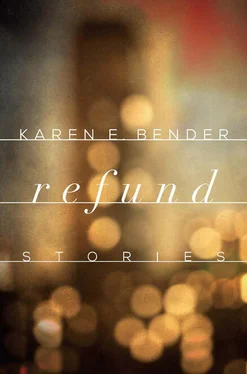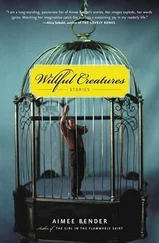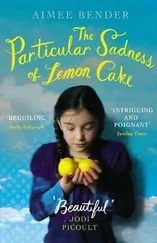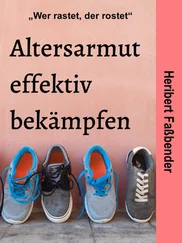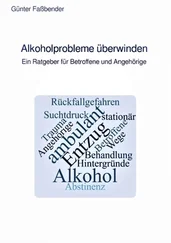— I don’t think so, he said. — I want to go home.
— Let’s eat first, I said. I was too hungry to intervene in disputes. My son gave me a look. Adam and Joshua blurred by us, heading upstairs. Our son and daughter followed them.
— Where’s the baby? I asked Aviva.
— She’s asleep upstairs.
— She can sleep through all this?
— She’s a good sleeper.
I looked at the immaculate table, the three different salads in crystal bowls. Aviva did not seem at all stressed, with her two small children and a newborn and her main activity, which was inviting Jews over and making them an elaborate kosher dinner! Every week! This was her work, coming to a town and absorbing us into her tribe. It wasn’t that different from the churchgoers who kept inviting us to First Baptist or St. Mark’s.
— Why aren’t you tired? I asked.
— I don’t know. I sleep when I can.
I heard a commotion upstairs, the ominous rumblings and thwap s of children’s play.
— Is the baby okay? I asked.
She was squeezing lemon juice into a bowl.
— She’s fine.
There was a thump from upstairs. The rabbi came into the kitchen. He was beaming at the sight of me and my husband, here in their tinfoil kitchen, actual captive Jews! I wondered how we ranked on the mitzvah tally. Four of us, and they probably thought I was good for a couple more kids. Ha. Perhaps this was the sort of day they waited for.
— We are getting a shipment of handmade matzah next week, he announced. — Did you know that my cousin is a matzah supervisor in Brooklyn? He times the matzah-making from the moment the water hits the flour — eighteen minutes. That’s what they have. Then they have to throw the whole thing out.
— Eighteen minutes? My husband asked, trying to understand some deeper meaning. — Why?
— Because it is, the Rabbi said.
The Rabbi seemed pleased, excited by this information. I found myself becoming irritable. Why? Why was there more throwing food out? Why cover the kitchen in tinfoil, why time the matzah production? I was having unsupportive thoughts. There was so much energy, so much flurry, and I wondered, for what?
I was very hungry.
Did you know, Rabbi , I wanted to tell him, that it felt good when Lionel put his hand on my breast, it felt good when he pressed his lips against mine, because he, too, had been cast off. I was crumbling. I had done all the right things, Rabbi, I had, truly, and it still did not matter; they did not want me anymore. They still let me go .
Aviva smiled at me; she was shiny with the exuberance of someone who believed she was on the right path in life. I probably had the same shininess ten months before. How quickly I had lost it; I feared I would never get it back.
There was another crash from upstairs. This time, the ceiling shook.
— Wow, I said, concerned. — What are they doing up there?
— Just playing.
— Do you want to check? I asked.
— They are fine.
— I’m going to check, I said. — Be right back.
I climbed the stairs to the second level. I was curious to see how they lived. There were two bedrooms. There were no real beds; mattresses were set on the floor with some blankets crumpled beside them. The lack of housekeeping skills was a little bit disconcerting. Did they not care how they slept, or were they simply too busy? In one room were Joshua and Adam. My children were standing by the wall, watching. Joshua and Adam were wrestling on the bed, rolling across it like dogs. Joshua picked up a metal flashlight and began to hit it against the bed. Adam laughed, watching him.
— Where’s the baby? I asked.
My children looked at me, blank; there was a baby here?
— Where’s the baby? I asked.
Adam lifted the sheet. Right on the mattress, beside her wrestling brothers, the newborn infant was sleeping. Her arms were over her head as though she were celebrating. At the sight of her, my children gasped. Bless them; they had, in some ways, had a decent upbringing.
— Here she is! Adam said, and he jumped on his brother again.
Quickly, I scooped up the baby. She was so small; she barely filled her pink terrycloth onesie. Her shining blue eyes fluttered, and she rested a cheek on my shoulder.
She was a baby, and I held her to me, her breath, frail as a butterfly’s, against my heart.
— Boys, I said, wondering if I would get in trouble for disciplining them, — careful on the bed!
They looked at me, stunned. They were totally getting a pass because of their outfits. They were little Chasidic ruffians, I thought. This could not go on.
I cradled the baby in my arms. She was so small, nearly weightless; it was almost difficult to believe she was alive.
The children followed me downstairs. Aviva was bringing the bowls of salad to the table. She looked up, saw me carrying the baby, and smiled.
— Oh, she’s up? Aviva held out her arms, and the baby melted into her. — This is Shana, she said.
I looked at her holding the small, light baby, and I felt heat ripple through me, a feeling I had not allowed myself.
— The boys were wrestling on the bed, I said. — They were hitting it with a flashlight. They almost rolled on her, I said. — Do you know what could happen then?
I tried to make my voice even, but I was mad. She looked at me, hearing this.
— You went and got her, Aviva said.
— Someone else should have, I said. — Maybe you.
— God sent you, said Aviva.
— No one sent me, I said. — I just went.
— Thank you for getting her, she said.
She kissed the top of the baby’s head, very gently. Adam and Joshua were bobbing around her now, and Adam reached forward and kissed the baby’s pink foot. The moment had shifted from potential childcare disaster to a scene of familial love; it was sweet but unnerving.
I was still hungry. Starving.
— Everyone, said Aviva, — it’s time for lunch.
We all sat down at that beautiful table, the silver candlesticks gleaming, the tablecloth a spotless, pure white, the table spread with crystal. The rabbi called each one of us to wash our hands three times and say a prayer before we ate, and our son asked why, and the rabbi said because we were told to do it. It was not a good answer, but sitting there, knowing what I knew, sitting in this strange town because we had been kicked from the jobs we had held for seventeen years, not knowing what would happen next, knowing I had betrayed them, knowing I would hold this inside me my whole life, I understood that there were no good answers. None.
And we ate an enormous lunch — which, may I add, was free — for no reason except we were Jews, sort of, and that they wanted us to do what they did, for no reason but that it was written down in a book thousands of years before. They liked us, and we wanted to be liked. Aviva was a good cook. It was a good lunch, and we talked about the matzah supervisors and ways to avoid leaven, and we weren’t planning to follow any of this; I knew that we would go home after and rebelliously eat bread. I could already picture the muffin I would attack when I got into our kitchen. But we sat there, nodding, pretending. The children went into the other room until mine came back and stated that they’d been hit again by Joshua, who claimed that he was just playing with a truck.
I did not believe that God had sent me, and I hoped Aviva would not leave her infant daughter loose in the bed again, and that her daughter would not be accidentally smothered or worse by her wild sons. I hoped that we would find jobs that would not make us so eager for this free lunch, and I hoped we would find friends that would make us less eager for any sort of company. I hoped that we could find something in common with Aviva and Rabbi Jacob, because they were, in fact, nice. I kept thinking of her baby, the sight of her sleeping, tiny, loose, on the bed. It was all I could think about. We kept eating and eating, and at the end of lunch, we helped her bus the dishes and stood with her in the humid, tin-foiled kitchen. I thought of that tiny baby lying on the bed, sitting there like a toy or a shoe, revealed by her brothers under the sheet, and then I loved that baby, that tiny perfect being, loved her as though she were my own.
Читать дальше
